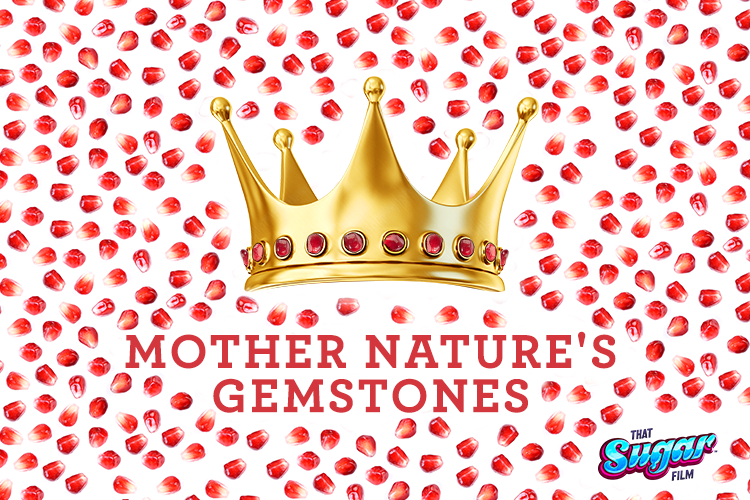Blog
Precious pomegranates
Have you ever thought about how much pomegranate seeds look like little red gemstones? In nutritional terms – they really are precious! In fact, some health experts say that pomegranates are the jewels in the fruit crown and we’re going to tell you why….
Pomegranates have seeds called arils (a great stat for trivia night) that contain loads of antioxidants, which help support the immune system and remove toxins from the body. They are a great source of Vitamin C as well as potassium and fibre.
The seeds of the pomegranate are quite high in sugar but this is counterbalanced by their fibre content. One 1/2-cup of pommie seeds contains 12 grams of sugar but also 3.5 grams of fibre, which is more than twice the amount of fibre found in the same serve of apples. This means that pomegranates don’t negatively impact blood sugar levels.
The antioxidant properties of pomegranates also give them anti-inflammatory powers – making it the fruit of choice to help combat or guard against heart disease, type 2 diabetes and Alzheimer’s disease.
The nutritional facts:
One cup of arils (about 174 grams) contains:
Fiber – 7 grams
Protein – 3 grams
Vitamin C – 30% of RDA
Vitamin K – 36% of RDA
Folate – 16% of RDA
Potassium – 12% of RDA
Several human studies have shown that pomegranates can assist with the prevention of heart disease by reducing LDL (low-density lipoprotein) cholesterol in the body.
9 things you didn’t know about pomegranates:
- In Australia, the best and cheapest time to buy pomegranates is when they are in season between March and May. You can find them at your local supermarket or farmer’s market.
- Arils can be frozen for up to three months. The best way to do this is to put a sheet of greaseproof paper on a baking tray and spread the arils in a single layer across the tray. Put them in the freezer uncovered for a few hours then transfer them into an airtight container and store in the freezer.
- Pure pomegranate juice can be used as a gargle to help treat sore throats.
- Unlike other types of fruit, pomegranates do not continue to ripen once they are picked which means they can be kept in the refrigerator for several weeks.
- If you want to pretty-up your drinks in Summer, use a mixture of arils frozen in coconut water instead of plain ice cubes (the kids will get a kick out of the ruby red fruitiness floating around in their cups!)
- The best way to get the seeds out of a pomegranate is by cutting the fruit in half and then tapping the back of each half with a wooden spoon over a bowl. You’ll need to use a fair amount of force and be careful you don’t hit your fingers.
- The seeds of the pomegranate are a colourful and sweet addition to a savoury salad in Summer. Check out our Pomegranate Party Salad recipe.
- Excessive consumption of pomegranates has been known to interfere with certain types of medication so don’t bathe in them.
- Pomegranate juice stains…so make sure you are not wearing your favourite t-shirt when you start squeezing those seeds!












